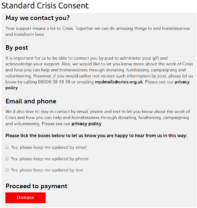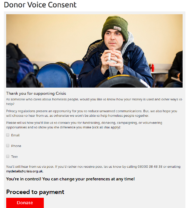Happy Birthday GDPR Or.. ‘How You Can Significantly Improve Consent’
This time last year was ‘doomsday’; GDPR came into effect. So, one year on, how are your consent rates? Not great right?
It’s not surprising. The panic and confusion, coupled with a lack of resource and God-awful information meant no one got it right. A shed load of consent was lost. But, with nothing to compare it to, failure was defined as success and is now the new standard. So, we didn’t just lose consent back then, we continue to lose it day after day.
Is anyone trying to fix that? Doubt it. After all, who has time for that now that the pressure is off? Well, here’s three reasons why you should.
1. You can always, always, do better
Maybe you managed to save half your base, maybe even more than half. Still, you can always increase the number of people who agree to stay in touch. Just because the deadline is gone, it doesn’t mean testing needs to stop. There are solutions out there that could improve your consent rates.
2. No one is watching anymore. No one is judging.
The whole saga is over and everyone behaves as if the problem is fixed. It’s not. Now is the time for you to keep pushing for better answers. And they will definitely be better to the ones everyone came up with when in a huge rush, under huge pressure for success (or paralysing fear) and in the public eye.
3. There’s no deadline anymore
Now you can test and experiment with consent all you want, for as long as you want. There is no pressure to find an answer within a limited time. You can take all the time you need to find what works best for you and your audience.
With giving going down and closures going up no charity can afford to be complacent about consent.
Here’s a great example of a charity that’s making improving consent a priority. Crisis worked with us to uncover which behavioural science principles could improve consent and how.
Then in an online environment, Crisis wanted to increase their email consent. Against their standard consent ask, we tested a version that included all the behavioural insights from our research project.
The result? An 8.4% higher chance of acquiring email consent using the new, insights-based consent ask. In a sector where’s it’s never been easy and never been harder that’s a significant win!
Want to find more about the methodology that produced these insights and results?
Contact me anytime at kkoutmeridou@thedonorvoice.com.




